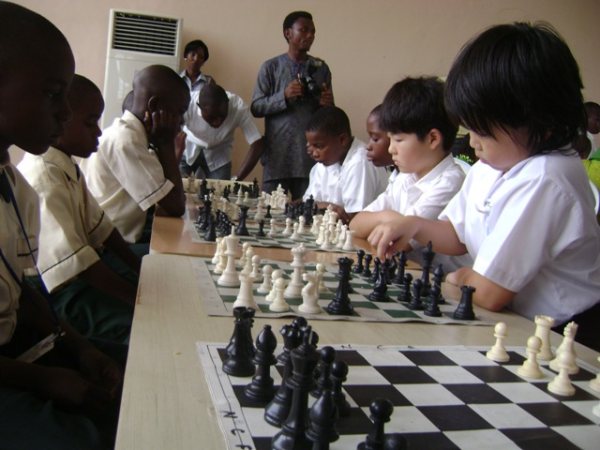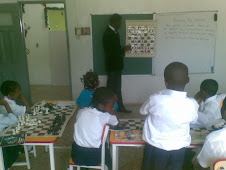Friday, July 20, 2012
Chess teaches independence. You are forced to make important decisions influenced only by your own judgment.
Chess develops the capability to predict and foresee consequences of actions. It teaches you to look both ways before crossing the street.
Chess inspires self-motivation. It encourages the search of the best move, the best plan, and the most beautiful continuation out of the endless possibilities. It encourages the everlasting aim towards progress, always steering to ignite the flame of victory.
Chess shows that success rewards hard work. The more you practice, the better you'll become. You should be ready to lose and learn from your mistakes. One of the greatest players ever, Capablanca said, "You may learn much more from a game you lose than from a game you win. You will have to lose hundreds of games before becoming a good player."
Chess and Science. Chess develops the scientific way of thinking. While playing, you generate numerous variations in your mind. You explore new ideas, try to predict their outcomes and interpret surprising revelations. You decide on a hypothesis, and then you make your move and test it.
Chess and Technology. What do chess players do during the game? Just like computers they engage in a search for the better move in a limited amount of time. What are you doing right now? You are using a computer as a tool for learning.
Chess and Mathematics. You don't have to be a genius to figure this one out. Chess involves an infinite number of calculations, anything from counting the number of attackers and defenders in the event of a simple exchange to calculating lengthy continuations. And you use your head to calculate, not some little machine.
Chess and Research. There are millions of chess resources out there for every aspect of the game. You can even collect your own chess library. In life, is it important to know how to find, organize and use boundless amounts of information. Chess gives you a perfect example and opportunity to do just that.
Chess and Art. In the Great Soviet Encyclopedia chess is defined as "an art appearing in the form of a game." If you thought you could never be an artist, chess proves you wrong. Chess enables the artist hiding within you to come out. Your imagination will run wild with endless possibilities on the 64 squares. You will paint pictures in your mind of ideal positions and perfect outposts for your soldiers. As a chess artist you will have an original style and personality.
Chess and Psychology. Chess is a test of patience, nerves, will power and concentration. It enhances your ability to interact with other people. It tests your sportsmanship in a competitive environment.
Subscribe to:
Posts (Atom)

